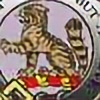HOME | DD
 lisa-im-laerm — That's Why
lisa-im-laerm — That's Why

#argument #atheism #atheist #atheists #dont #god #there #not #know
Published: 2018-09-11 15:51:38 +0000 UTC; Views: 2680; Favourites: 30; Downloads: 2
Redirect to original
Description






 The Point of Existence Argument
The Point of Existence Argument Argument: If God did not exist there would be no point in our existence. Therefore he must exist.
Refutation: There are two implicit assumptions here. One is that there can be a point to our existence only if there is a God; the other is that there is indeed a point to our existence. Neither is self-evident. The weaknesses of the assumptions can be shown up by using the same argument on something else: for example: if God did not exist there would be no point in the existence of sea slugs. But is there a point in the existence of sea slugs And if there is, would there be less point to their lives if God did not exist? Unless one assumes the required conclusion (that there is a point to the existence of humans/sea slugs) then the argument simply falls down.
What the argument boils down to is this: I do not want to believe that there is no God because the consequences do not suit me; therefore I will believe that there is one. Many believers will happily accept the argument, even when it is phrased like this.
2.The etter than Animals ArgumentArgument: This argument was well put by Francis Bacon ".... certainly man is kin to the beasts by his body; and, if he be not kin to God by his spirit, he is a base and ignoble creature".
Refutation: This is really just a variation of the preceding "Point of Existence" argument. We have to believe that we are somehow better than animals, because we do not like the idea that we are essentially the same as they are.
We want to hold a special place in the Universe, so we have to believe something that confirms our uniqueness. The argument can be refined by pointing to abilities and aspects of behaviour that seem to be peculiarly human, and God-given. This is the next argument to be considered.
3.The Human Uniqueness ArgumentArgument: Human beings are different from other animals, and the source of this difference can only be divine.
Refutation: This is a substantial argument, which is worth considering in detail. It once appeared to be promising territory to hopeful Christians. Humankind did indeed seem to be vastly superior to animals in many ways. Humans had material souls that would, eventually, be scientifically proved to exist. Humans used tools and medicines, animals didn"t; humans were altruistic, animals were selfish; humans experienced emotions, animals didn"t; humans were self-aware, animals had no concept of self; human beings used language, animals did not; human beings were moral beings, animals were not. All manner of differences could be cited as evidence of human uniqueness: only humans fall in love, only humans cry, only humans farm other creatures; only humans decorate themselves with artificial ornaments, and so on. One by one these examples have been picked off.
The claim that humans had material souls that could be scientifically proved to exist was never vindicated and has now been abandoned. It is not true that only humans use tools or medicines. Lowly butcher birds use thorns to butcher their prey, sea otters use stones to dislodge and break open shellfish, and many other animals use tools for other purposes. Animals use medicines too. A number of primates change their diet according to their health, and some animals even use recreational drugs such as the loco-plant. It is not true that only humans are altruistic. Many animals that live in communities are altruistic, baby-sitting, food sharing, taking risks to warn others of danger, and so on. By any standards, bees, wasps and termites are far more altruistic than human beings. It is not true that only humans experience emotions. Darwin himself wrote a book, first published in 1871, on the expression of emotions in man and animals, that shows how similar the expression of emotion is between species .
It is not true that all animals lack self-awareness. For example, chimpanzees and a few other higher primates soon learn to recognise themselves in mirrors. That they truly recognise themselves is demonstrated by the uses to which they put their mirrors, for example checking their teeth . It is not true that animals do not use language. Octopuses and other cephalopods have a sophisticated visual language that to date has proved too complex for us to understand. Bees have a complex visual language too, communicating sophisticated information such as directions and distances. Dolphins have a sophisticated sound language, and so do many primates. Chimpanzees can understand human speech, but lacking suitable vocal cords they cannot articulate it well themselves, though they can generate it well enough using visual symbols. Neither is Christian morality much of a guide. If we use faithfulness as a moral criterion, we find that a number of species are more moral than human beings.
The gospels (especially Mt.21:4-5 and Jn.12:14-15 ) claim that Jesus fulfils this prophecy. But the next few verses (9:10-13) show that the person referred to in this verse is a military king that would rule "from sea to sea." Since Jesus had neither an army or a kingdom, he could not have fulfilled this prophecy.
But that didn't stop the gospel authors from applying this prophecy to Jesus. They searched for prophecies in the Hebrew scriptures, and then claimed that Jesus fulfilled them. The author of Matthew's gospel got a bit carried away with this one, though; he had Jesus riding on two donkeys, since he misunderstood the Hebrew poetry in Zechariah 9:9.
Matthew 21:4 says, "All this was done, that it might be fulfilled which was spoken by the prophet." And he might be right about that. If Jesus really did ride into town on a donkey (or two donkeys), then he probably did it so that he would "fulfil" the prophecy in Zechariah. It's easy to fulfil a prophecy if you set your mind to it. 9:9
skepticsannotatedbible.com/pro…
In 1 Thessalonians 4:14-18 it is obvious that Paul felt he himself would be alive when Jesus returned to establish God's kingdom on Earth. Needless to say, this didn't happen
advocatusatheist.blogspot.de/2…
Related content
Comments: 18

Assuming you are not an anti-natalist, (in which case the following question would be moot), and value the continued success of our species, can you identify a family line of atheists that have remained, consistently atheists, for four generations or more, without them falling below 50% replacement levels since their last religious ancestors, (if their great great grandparents had 8 surviving children, their current descendants all have an average together of close to 2.1) all without ANY of those descendants finding religion on their own?
This is halfway between a hypothetical and a rhetorical question.
However, while specific research into the families of atheists and how effective or defective you all are at breeding sustainably would be an excellent follow up, it doesn’t change the primary reason of why I bring this up: when the COMMON MAN becomes atheistic, he stops having any children to speak of. I’d say the philosophically more sophisticated atheists, (assuming, again, that they don’t have an irrational prejudice against having children), who have four of five kids are an exceptional type of outlier. They also tend to be the type to be more tolerant of the religious, “Spiritual Libertarians”, (as I am) in my personal experience.
All this suggests that the most empirically probable biological function of religion is to motivate and regulate sustainable reproductive behavior in a sapient species aware of time and our mortality. It is irrefutable that the less religious a society is, on the level of the commons, the more their replacement population drops like an anvil .
So perhaps the answer should be:
“Because:
BABIES!”
👍: 0 ⏩: 0

Just asking, are you preaching Atheism?
And no i don't pick fights.
👍: 0 ⏩: 2

👍: 0 ⏩: 0

Sure you don't want pick fights? "preaching"
👍: 0 ⏩: 0

The worst part is that people don't stop at what is unknown for their god arguments Just look at flat-Earthers who decide they can just up and refute established scientific facts so they can replace them with their crap There's a reason Christianity grew during the Dark Ages, it thrives on willful ignorance
👍: 0 ⏩: 1

No idea my dear
“[] no man is ever free and probably could not bear it if he were...”
William Faulkner; Go down Moses
👍: 0 ⏩: 0

Been beating my head against this wall for forty years now. And used nearly all of your examples. Plain fact of the matter is that I've made more progress in destroying walls with my forehead than even getting these bigots to simply stop trying to force their crap down my throat let alone acknowledge that their may just possibly be a flaw in their thinking. I've also belatedly discovered that (while less rude) buddhists are no less deaf to a live and let live attitude and equally willfully blind.
👍: 0 ⏩: 1

Ikr Jos! Especially those you had contact with, it is almost impossible to get rid of them, no escape somehow 
“Never wrestle with pigs. You both get dirty and the pig likes it.”
– George Bernard Shaw
👍: 0 ⏩: 1

And thank you. I may not fav them all, but reading your rants is a breath of fresh air I look forward to.
👍: 0 ⏩: 1

You don't have to fav them at all. Good to know, that you like it, that's more than enough!
👍: 0 ⏩: 0

I was feeling a little down today and somebody tried to "pray for" me in the hope I'd chin up. If he was a better friend and better informed and didn't use his god as a social/psychological crutch (and maybe wasn't a lifelong Republican), he'd try something better to prove their friendship.
👍: 0 ⏩: 1

It is easier simply, helping is more difficult
Also seems to me very often, that they don't even do that, just an empty phrase to escape from responsibility from pretty much everything
👍: 0 ⏩: 1

Well see, he and I get along very well, it's just rare that he does nice things for me.
👍: 0 ⏩: 1

Sure, you know him better and I don't know him at all. I only would say "generally" it is often so, perhaps they even pray for a few seconds, so THEY can feel better about all...
Worser even is, when "help" is forced on you, you never asked for, that's pretty hard! It can cause also a lot of harm!
“Do not do unto others as you would that they should do unto you. Their tastes may not be the same.”
– George Bernard Shaw
👍: 0 ⏩: 1



















